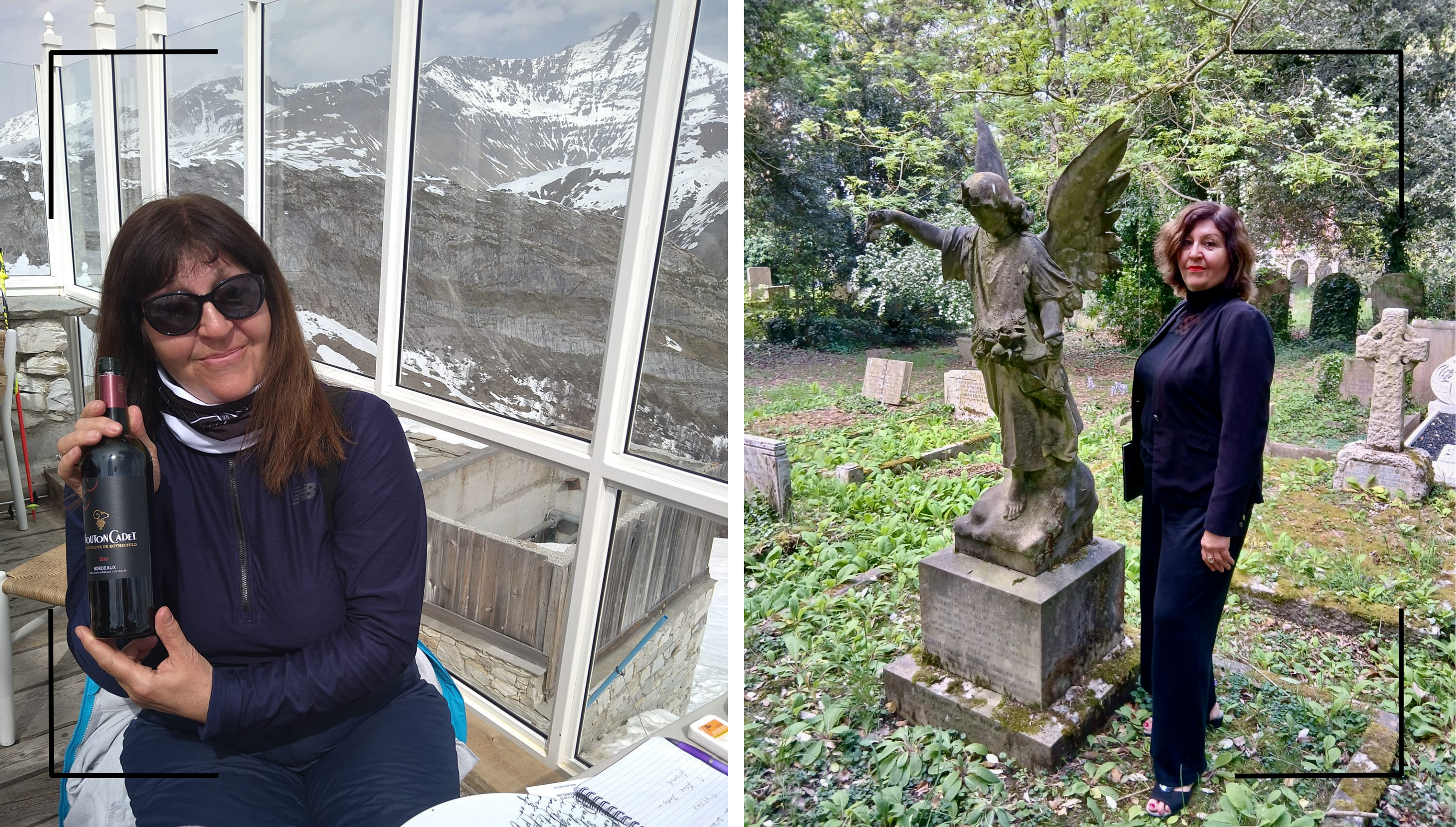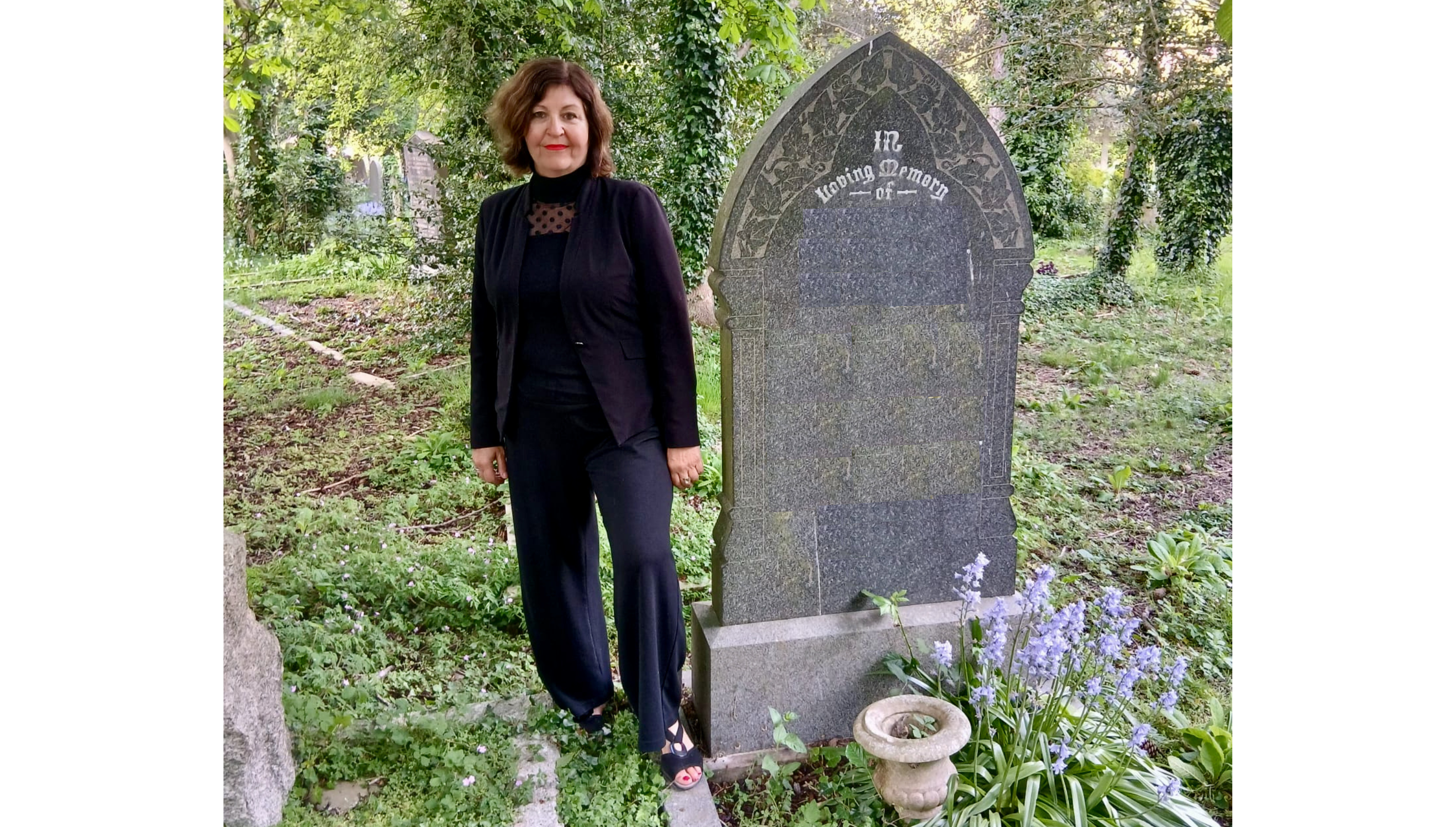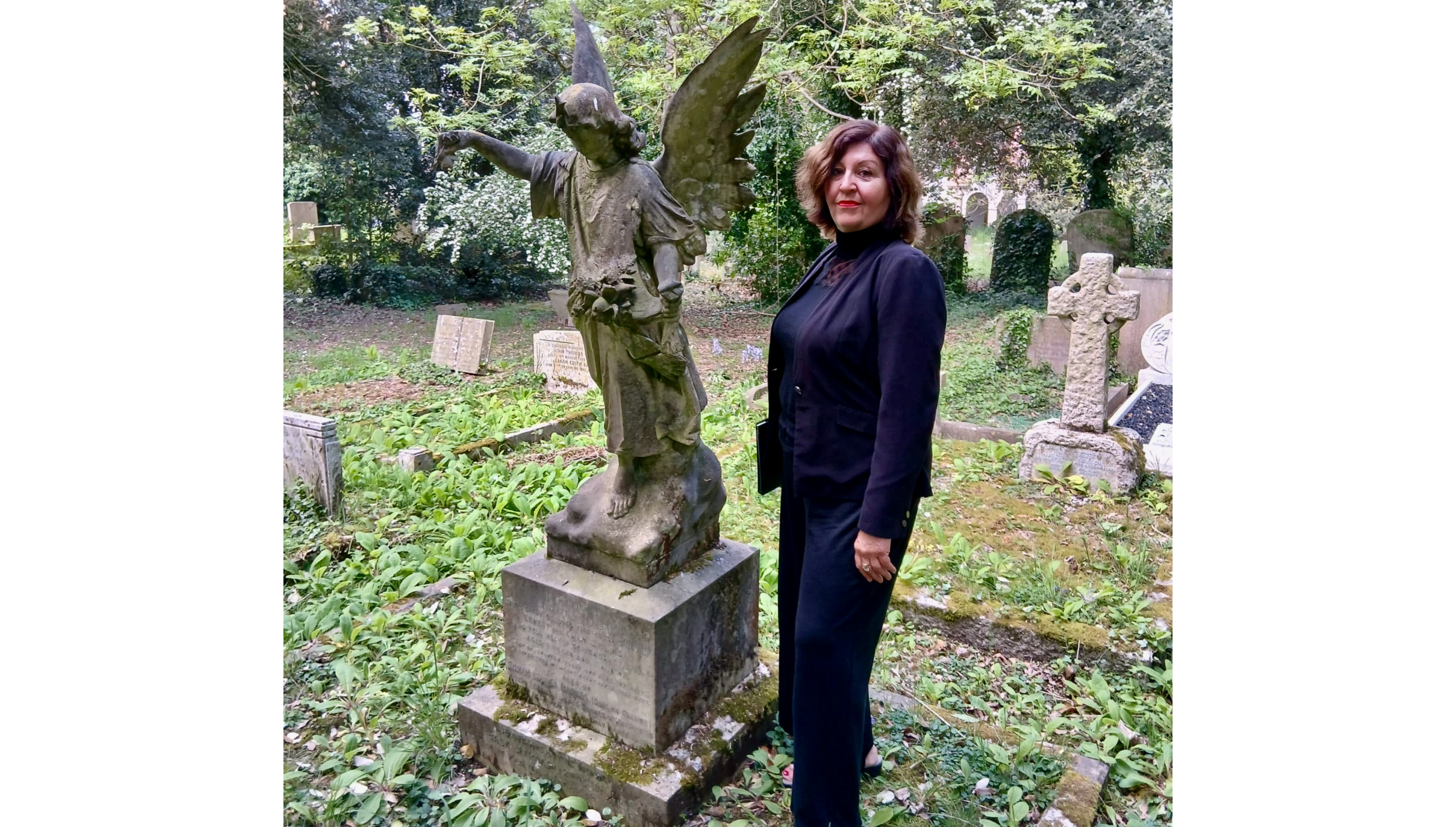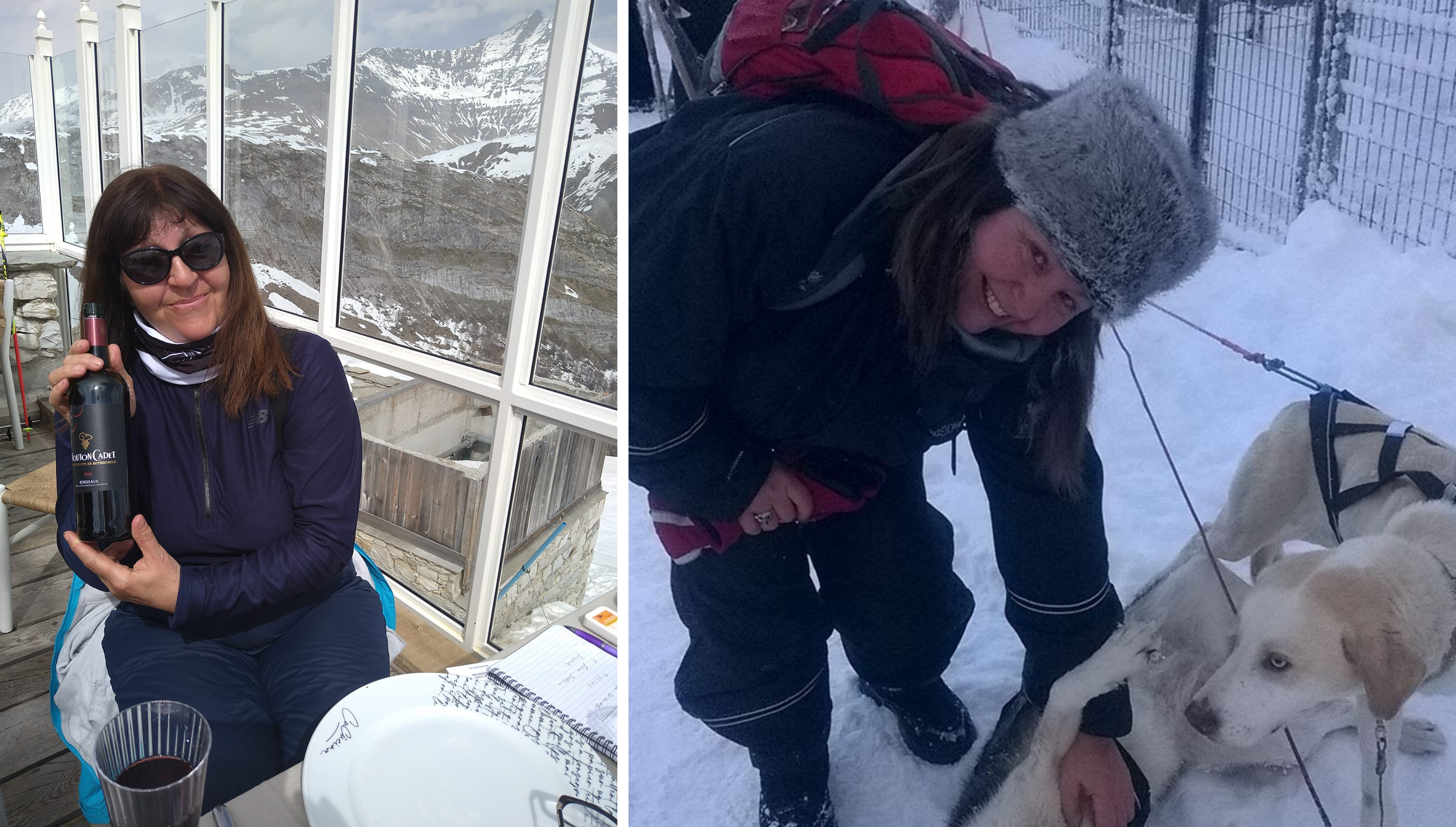“I quit my journalism career after 35 years… to deliver funerals”
I left the world of bylines, columns and exposés in national newspapers to deliver funeral ceremonies. And I don’t find it depressing in the least – in fact, it has given me a new lease of life


Sign up to our free daily email for the latest royal and entertainment news, interesting opinion, expert advice on styling and beauty trends, and no-nonsense guides to the health and wellness questions you want answered.
You are now subscribed
Your newsletter sign-up was successful
Want to add more newsletters?

Daily (Mon-Sun)
woman&home Daily
Get all the latest beauty, fashion, home, health and wellbeing advice and trends, plus all the latest celebrity news and more.

Monthly
woman&home Royal Report
Get all the latest news from the Palace, including in-depth analysis, the best in royal fashion, and upcoming events from our royal experts.

Monthly
woman&home Book Club
Foster your love of reading with our all-new online book club, filled with editor picks, author insights and much more.

Monthly
woman&home Cosmic Report
Astrologer Kirsty Gallagher explores key astrological transits and themes, meditations, practices and crystals to help navigate the weeks ahead.
“I left the dismal church funeral of a friend’s mum last January knowing no more about Dorothy than I did before. Shortly afterwards, I attended a funeral delivered by a female celebrant, about my age. I was so moved by this celebration of life, which was all about the deceased, his likes, dislikes, quirks and values.
“I was so inspired, I couldn’t get the idea out of my head of becoming a celebrant myself.
“After all, with more than 30 years as a national newspaper journalist under my belt, I had some transferable skills. I knew how to talk to people – heaven knows I had interviewed enough people in order to tell their stories. I am an experienced writer, so my eulogies would likely be above average.
“Besides, I fancied a change, and the idea of helping those going through monumental loss appealed to me."
Retraining was intense
“Around 80% of British people desire no, or very minimal, religious content in their funeral service, according to a 2023 survey by Funeral Guide. Encouraged by this fact, I applied to train last year to become a civil funeral celebrant. I was thrilled when I got accepted.
“It was hard work, with distance learning completed over three months, followed by five long, gruelling days at university during which we conducted a mock funeral service at a crematorium, and a ‘burial’. To my immense pride, I passed with flying colours.
“I started marketing my services in late September, splashing out on some smart new black funeral outfits."
Sign up to our free daily email for the latest royal and entertainment news, interesting opinion, expert advice on styling and beauty trends, and no-nonsense guides to the health and wellness questions you want answered.
My first funeral

“I took my first service in early December, and I have to admit I was feeling nervous on the day. You only have one chance to get it right, and the enormity and the responsibility of it all suddenly hit me.
“As the funeral director made the long, slow march from the crematorium’s gates to the chapel building, I swallowed hard. What if I tripped over as we led the coffin in? What if I couldn’t speak and the words came out wrong? What if I started blubbing, overcome by the emotion of it all?
“When the pallbearers were ready, the funeral director nodded solemnly and we entered the chapel, walking very slowly, in step, right foot first.
“Nothing had prepared me for the immense sense of drama. When the music started (‘Annie’ by John Denver, chosen by the deceased’s husband) I felt overwhelmed. But I remembered what our tutors had emphasised over and over – it’s not your grief. I snapped out of it with a jolt.
“I looked down as the last few devastated mourners trickled in, faces crumpled in grief, and any trace of nerves evaporated. My feelings paled into insignificance compared to what they were going through. The moment I began speaking, I became very calm.
“My first service went well and the family thanked me profusely as they left. I was thrilled and relieved that they were happy with what I had written and delivered. Almost every mourner murmured ‘thank you – lovely service’ as they left. The funeral director praised me too. I was on Cloud Nine."
"From then on, I have never felt anything but calm and collected at the start of a funeral. Yes, it is a sublime piece of theatre, and an incredibly important event, but the celebrant isn’t in the starring role. We are a mere conduit to deliver what the family want, as they say their final farewell."
Memorable moments

“Since then, I have conducted a variety of ceremonies, including one attended by a household name celebrity who flew in from LA. Another involved some very jolly mourners who drank whisky throughout the service, dancing in the aisles to Johnny Cash’s ‘Ring of Fire’. A service for a little old lady who had been an Elvis fan ended with ‘Return to Sender’ playing. And then there was the ballerina who had requested three curtain calls at the end of the service as her coffin, white ballet shoes perched on top of it, disappeared to rapturous applause.
“The world of newspapers gave me a fantastic career, and I mostly loved what I did, particularly when it involved exposing wrongdoing. But being a celebrant has given me a different kind of job satisfaction.
“When I arrive at a grieving family’s house, feeling their panic and stress at what lies ahead, I know I can take a lot of the pressure off as together, we design the ceremony they want.
“I conducted a funeral a few weeks ago and was, as usual, early. The first mourners to arrive were two teenage girls, grandchildren of the deceased. They saw me and burst into tears. It took me a split second to realise why. I was the first person they saw, the lady in black, proof that it was all real. Making people cry wasn’t what I had expected. I’m not sure I will ever get used to it."
Why I have no regrets about changing career

Lynne in her former career, on press trips
“I loved life as a journalist, but my new role as a funeral celebrant has made me even more life-loving. It has made me appreciate how short life is, how fleeting it is, and how we must get the most out of it whilst our good health prevails. Because before we know it, our time will be up.
“So, if there is anything you want to do, even if it means ditching your career in middle age to retrain for something else, just go for it. You only get one go at life. Make the most of it. You will regret it if you don’t.”

Lynne has been a national newspaper and magazine journalist for 33 years, writing on topics as diverse as cultic abuse to health, charities, property and travel. She has been involved with campaigning for care homes, workplace equality, the rehabilitation of prisoners and social issues such as homelessness.
Lynne, who qualified as a funeral celebrant in July 2024, is also a jazz singer working in pubs and clubs around London and Kent. She lives in Thanet, Kent.